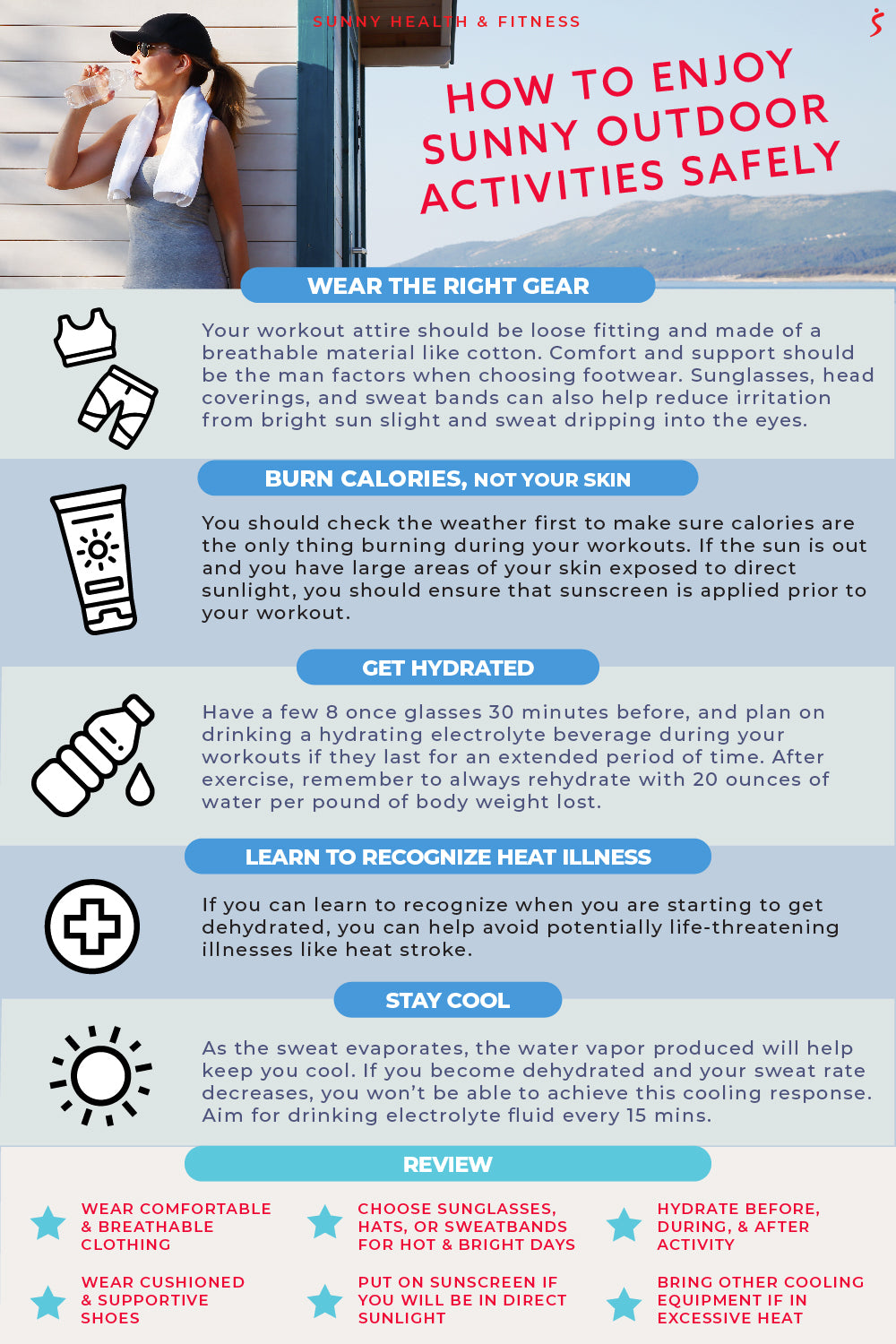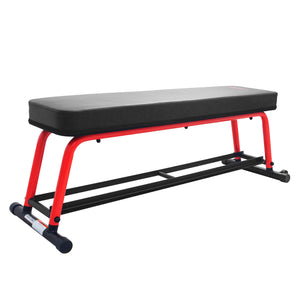Wear The Right Gear
Checking the weather before you head out to enjoy your workout will help you decide what type of gear you need to wear to exercise safely and comfortably. Unless you are familiar with tight fitting clothing, you workout attire should be loose fitting and made of a breathable material like cotton. Comfort and support should be the man factors when choosing footwear. More cushion can help those who plan on enjoying extended time walking, jogging, or running, while shoes with more lateral support for the foot and ankle will help those desiring to participate in activities requiring agility and movement variety. Sunglasses, head coverings, and sweat bands can also help reduce irritation from bright sunlight and sweat dripping into the eyes.
Burn Calories, Not Your Skin
Taking your workouts outdoors is a great way to burn calories well enjoying the fresh air and the sun's vitamin D producing sunlight. If you find yourself desiring to escape the confines of your living space for a bout of exercise, you should check the weather first to make sure calories are the only thing burning during your workouts. If the sun is out and you have large areas of your skin exposed to direct sunlight, you should ensure that sunscreen is applied prior to your workout. Keep in mind that the process of rubbing in your sun block may leave an oily residue on your hands which could affect your grip on equipment if you are planning on enjoying a sun filled resistance training session. Enjoy the sun, not the burn!
Get Hydrated
The ability to control the temperature in your workout environment will help prevent your perspiration rate from escalating past normal amounts. When venturing outside to enjoy the sun and outdoors, you will want to prepare for the extra heat by getting hydrated prior to your outdoor activity. Comfortable workout environments will maintain temperatures in the high 60’s. If you notice you still sweat a good amount in a gym, you will increase the amount of sweat once you enter an outdoor environment with rising temperatures. Aim for increasing your hydration levels prior to enjoying any sunny outdoor activities. Don’t chug a couple water bottles before you head out the door. This could upset your stomach and make exercise uncomfortable. Have a few 8 once glasses 30 minutes before, and plan on drinking a hydrating electrolyte beverage during your workouts if they last for an extended period of time. After exercise, remember to always rehydrate with 20 ounces of water per pound of body weight lost.
Learn to Recognize Heat Illness
Dehydration is a serious condition that can lead to life threatening circumstances, and is a very common heat illness. If you can learn to recognize when you are starting to get dehydrated, you can help avoid potentially life-threatening illnesses like heat stroke. Besides the thirst response, your body has other ways of signaling your need for increased hydration. Having a dry mouth, not urinating frequently, having dark or bright yellow urine, cramping, and headaches can signal that you are dehydrated. When dehydration gets really bad, you may start to feel dizzy, experience increased breathing and heart rate, have trouble sleeping, and extremely dry skin. If these symptoms start to appear you must seek medical care.
Stay Cool
Contrary to how you feel about sweat, it is a healthy response to body temperature rising. As the sweat evaporates, the water vapor produced will help keep you cool. If you're dehydrated and your sweat rate decreases, you won’t be able to achieve this cooling response and will be at a greater risk for heat related illness. If temperatures are excessively high, you may need to time your hydration to keep up with your perspiration rate. Aim for drinking electrolyte fluid every 15 minutes. Having a cooling fan or ice towels handy can also help keep your body from overheating in extreme heat.
Review
- Wear comfortable and breathable clothing
- Wear cushioned and supportive shoes
- Choose sunglasses, hats, or sweatbands for hot and bright days
- Put on sunscreen if you will be in direct sunlight
- Hydrate before, during, and after activity
- Bring other cooling equipment like ice towels and fans if in excessive heat




























Add Your Name & Email
Please enter your name and email to continue.We won’t display your email publicly.